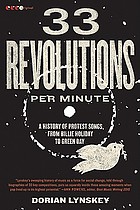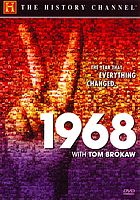


There is a feature within our catalog that allows you to check your local libraries for an available copy of our resources within your geographic area.
|
|
These articles are available via the database Rock's Back Pages.
 33 revolutions per minute : a history of protest songs, from Billie Holiday to Green Day
by
A history of protest music embodied in 33 songs since the 1930s.
33 revolutions per minute : a history of protest songs, from Billie Holiday to Green Day
by
A history of protest music embodied in 33 songs since the 1930s.
 Popular Music and Human Rights
by
Popular Music and Human Rights
by
 Right to Rock
by
An account of the Black Rock Coalition, that began in New York in 1985, & its relation to the results of the civil rights era integration, to the larger questions of racialization in the music industry, & American society.
Right to Rock
by
An account of the Black Rock Coalition, that began in New York in 1985, & its relation to the results of the civil rights era integration, to the larger questions of racialization in the music industry, & American society.
 Segregating Sound
by
Tin Pan Alley on tour : the Southern embrace of commercial music -- Making money making music : the education of Southern musicians in local markets -- Isolating folk, isolating songs : reimagining Southern music as folklore -- Southern musicians and the lure of New York City : representing the South from coon songs to the blues -- Talking machine world : discovering local music in the global phonograph industry -- Race records and old-time music : the creation of two marketing categories in the 1920s -- Black folk and hillbilly pop : industry enforcement of the musical color line -- Reimagining pop tunes as folk songs : the ascension of the folkloric paradigm -- Afterword : "All songs is folk songs"
Segregating Sound
by
Tin Pan Alley on tour : the Southern embrace of commercial music -- Making money making music : the education of Southern musicians in local markets -- Isolating folk, isolating songs : reimagining Southern music as folklore -- Southern musicians and the lure of New York City : representing the South from coon songs to the blues -- Talking machine world : discovering local music in the global phonograph industry -- Race records and old-time music : the creation of two marketing categories in the 1920s -- Black folk and hillbilly pop : industry enforcement of the musical color line -- Reimagining pop tunes as folk songs : the ascension of the folkloric paradigm -- Afterword : "All songs is folk songs"
 Equal Rights
by
Equal Rights
by
 In square circle
by
In square circle
by
 We shall overcome: the complete Carnegie Hall concert
by
June 8, 1963
We shall overcome: the complete Carnegie Hall concert
by
June 8, 1963
Search the Archives for these subjects & more!
Digital video (available on-site only):
 1968 with Tom Brokaw
1968: in that single year, MLK and RFK were assassinated, Chicago rioted, Nixon triumphed, and Tet exploded. The top music acts were the Beatles, the Doors, Otis Redding and Marvin Gaye. Man circled the Moon. From Civil Rights to Vietnam, from rock & roll to rocket science, 1968 stands out as a concentrated dose of everything we think of as the Sixties.
1968 with Tom Brokaw
1968: in that single year, MLK and RFK were assassinated, Chicago rioted, Nixon triumphed, and Tet exploded. The top music acts were the Beatles, the Doors, Otis Redding and Marvin Gaye. Man circled the Moon. From Civil Rights to Vietnam, from rock & roll to rocket science, 1968 stands out as a concentrated dose of everything we think of as the Sixties.
 Breaking rocks / Strummerville : the Joe Strummer Foundation for New Music
Story of Jail Guitar Doors, Billy Bragg's independent initiative which aims to provide instruments to those who are using music as a means of achieving the rehabilitation of prison inmates
Breaking rocks / Strummerville : the Joe Strummer Foundation for New Music
Story of Jail Guitar Doors, Billy Bragg's independent initiative which aims to provide instruments to those who are using music as a means of achieving the rehabilitation of prison inmates
 The concert for Bangla Desh / directed by Saul Swimmer
The first benefit concert of its kind that brought together major artists collaborating for a common humanitarian cause, helping to generate millions of dollars for UNICEF and raise awareness for the organization around the world
The concert for Bangla Desh / directed by Saul Swimmer
The first benefit concert of its kind that brought together major artists collaborating for a common humanitarian cause, helping to generate millions of dollars for UNICEF and raise awareness for the organization around the world
 Do the right thing / produced, written and directed by Spike Lee
Do the right thing / produced, written and directed by Spike Lee
 The gun is loaded [videorecording] / written and performed by Lydia Lunch ; directed by Merrill Aldighieri, Joe Tripician
Through words and montage, Lunch issues a manifesto on the dark side of America at the end of the Reagan era
The gun is loaded [videorecording] / written and performed by Lydia Lunch ; directed by Merrill Aldighieri, Joe Tripician
Through words and montage, Lunch issues a manifesto on the dark side of America at the end of the Reagan era
 Let Freedom Sing: How Music Inspired the Civil Rights Movement
One of the most powerful movements in American history is told through the singers and songwriters who fought for change with their music.
Let Freedom Sing: How Music Inspired the Civil Rights Movement
One of the most powerful movements in American history is told through the singers and songwriters who fought for change with their music.
 Rock Montreal & Live Aid
by
Rock Montreal recorded and filmed live at the Forum in Montreal, Nov. 1981 ; Live Aid concert recorded and filmed at Wembley Stadium, London, July 13, 1985
Rock Montreal & Live Aid
by
Rock Montreal recorded and filmed live at the Forum in Montreal, Nov. 1981 ; Live Aid concert recorded and filmed at Wembley Stadium, London, July 13, 1985
 Wattstax / a Stax Films/Wolper Pictures production
Documents the concert that came to be known as 'the Black Woodstock,' held on the anniversary of 1965 Watts Riot, and had 100,000 in attendance
Wattstax / a Stax Films/Wolper Pictures production
Documents the concert that came to be known as 'the Black Woodstock,' held on the anniversary of 1965 Watts Riot, and had 100,000 in attendance
 Woody Guthrie : ain't got no home / written, produced and directed by Peter Frumkin
Written by Woody Guthrie in 1940, "This land is your land" is one of the United States' most famous songs. Its Oklahoma-born author, Woodrow Wilson "Woody" Guthrie, was a complex, multi-talented man whose songs would come to exemplify that strain of American music. Yet his life was a tangle of unresolved contradictions: an indifferent guitar player yet an accomplished musician; three times married, but a perennially unfaithful husband; distant or doting father; acquainted with many yet well-known to few; a rambler who longed for home; the writer of as many as 1,400 songs, which he set to borrowed melodies. He recorded over 400 songs and enjoyed a great deal of success, but only became widely popular during the folk revival of the 1950s. This film chronicles the life and times of Woody Guthrie--populist poet, balladeer, rabble-rouser, and prototypical ramblin' man
Woody Guthrie : ain't got no home / written, produced and directed by Peter Frumkin
Written by Woody Guthrie in 1940, "This land is your land" is one of the United States' most famous songs. Its Oklahoma-born author, Woodrow Wilson "Woody" Guthrie, was a complex, multi-talented man whose songs would come to exemplify that strain of American music. Yet his life was a tangle of unresolved contradictions: an indifferent guitar player yet an accomplished musician; three times married, but a perennially unfaithful husband; distant or doting father; acquainted with many yet well-known to few; a rambler who longed for home; the writer of as many as 1,400 songs, which he set to borrowed melodies. He recorded over 400 songs and enjoyed a great deal of success, but only became widely popular during the folk revival of the 1950s. This film chronicles the life and times of Woody Guthrie--populist poet, balladeer, rabble-rouser, and prototypical ramblin' man
|
Rock & Roll Hall of Fame | Library & Archives 2809 Woodland Avenue | Cleveland, OH 44115 | 216.515.1956 | rockhall.com/library |